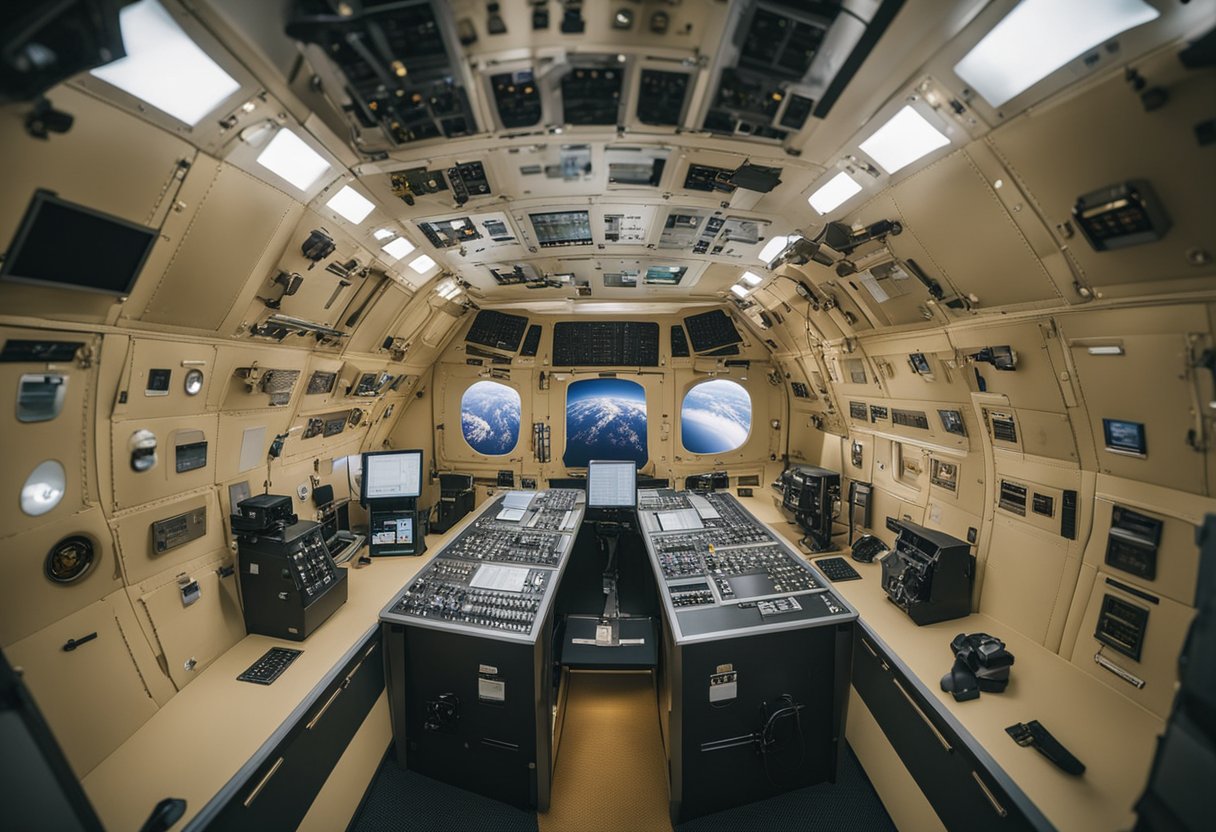
Zero gravity flight packages offer an otherworldly experience that was once exclusive to astronauts but is now accessible to the public. Zero gravity flights simulate the experience of weightlessness, providing a glimpse into the sensations of space travel without leaving Earth’s atmosphere. By flying in a specially modified aircraft that performs parabolic arcs, passengers experience short periods of weightlessness, allowing them to float freely within the cabin.
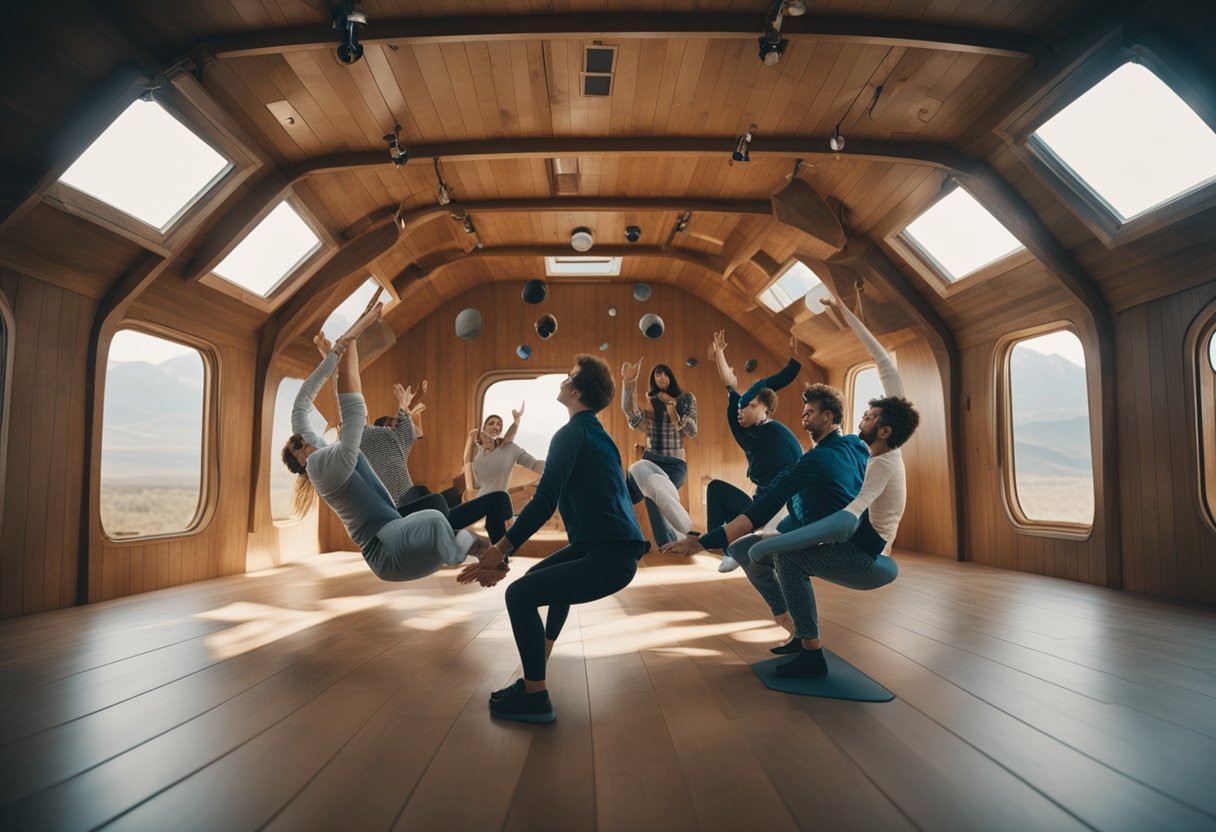
Accommodating both individuals and professionals, these flights serve a diverse clientele, from space enthusiasts and tourists to filmmakers and researchers. The growth of commercial space flight providers has democratized access to these rare experiences, making what was once a dream for many, a tangible reality. Whether for the thrill of floating weightlessly or for the unique conditions required for various types of research and creative projects, zero gravity flights are an engaging and expanding frontier in contemporary aviation and space tourism.
Embarking on a zero gravity flight affords an exceptional opportunity to encounter the unique sensation of weightlessness, a phenomenon primarily reserved for astronauts venturing into space. These flights serve as an accessible gateway for the public to savor a taste of astronaut life without the need for intensive space travel.
Our zero gravity experience simulates the thrill of space by allowing us to float freely, unbound by the Earth’s gravitational pull. Onboard the modified aircraft, we transition seamlessly from the typical overpowering force we constantly endure to an environment where we can experience true weightlessness. This momentous sensation is not merely a simulation; it’s as authentic as it is in outer space, setting us adrift like celestial bodies beyond our planet’s atmosphere.
The appeal of floating in a zero gravity environment extends beyond the physical sensation; it embodies the realisation of mankind’s age-old dream to soar amongst the stars. During a Zero-G flight, participants can perform aerial manoeuvres and mid-air acrobatics, savouring the astonishing absence of gravity which until recently was a marvel only astronauts were familiar with. The experience is a mesmerising dance with physics, permitting an unfiltered connection with the vastness of space—right here within reach on our extraordinary home planet.
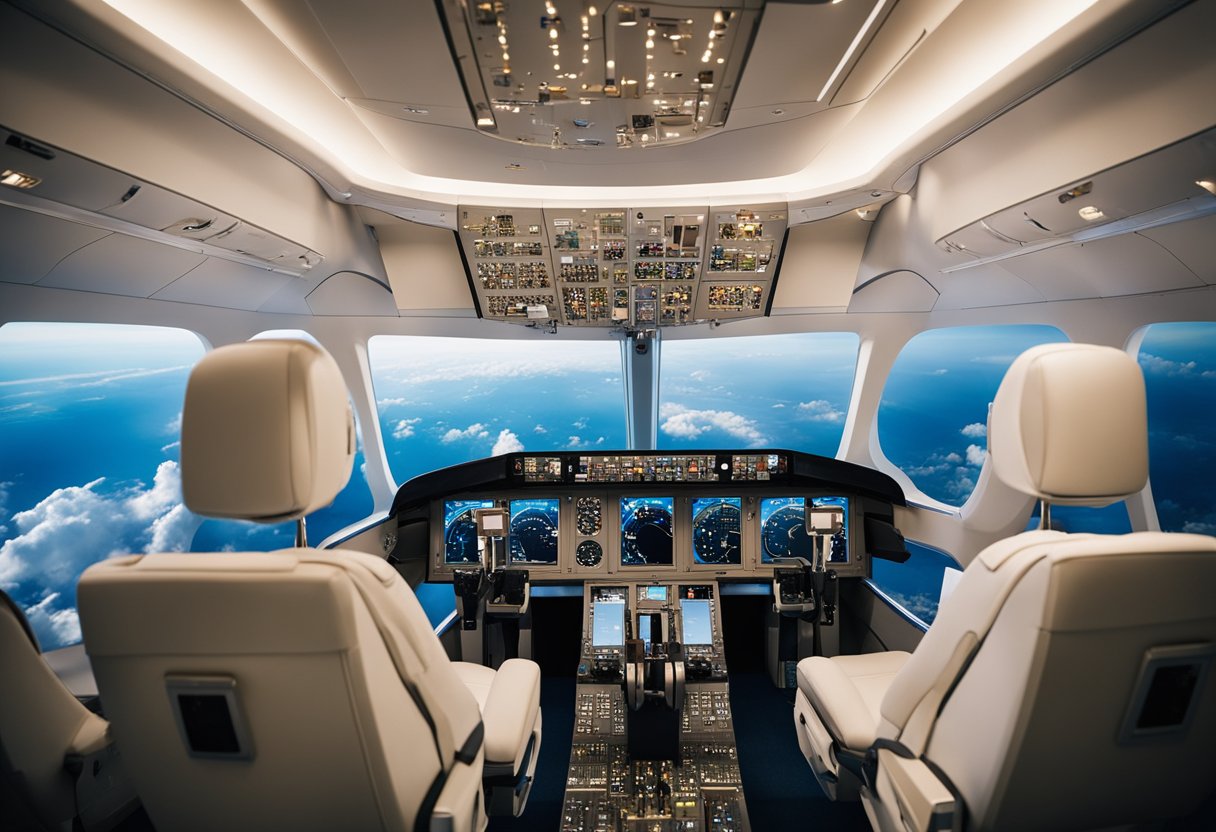
In this section, we explore the intricate technicalities behind zero gravity flight experiences. The precision of parabolic flight mechanics and the exacting specifications of the aircraft involved are critical for a safe and thrilling weightlessness experience.
To achieve a state of weightlessness, or what is often referred to as ‘zero-g’, we must understand parabolic flight mechanics. G-FORCE ONE, a specially adapted aircraft, performs a series of parabolas, which are aerobatic manoeuvres akin to rolling hills in the sky. During each parabola, the aircraft climbs at a sharp angle of approximately 45 degrees, then reduces thrust and levels out to create the sensation of reduced gravity. Passengers experience about 1.8 gs—1.8 times the normal force of gravity—during the ascent and then weightlessness during the descent.
The Boeing 727 used for these experiences, such as G-FORCE ONE, is a testament to the precision required in zero gravity flight operations. These aircraft undergo rigorous modifications and receive FAA-approved certifications. Operating at an altitude typically between 24,000 and 32,000 feet, sufficient room is allowed for the pilot to safely command the aircraft through each meticulous parabola. This high-performance aircraft’s adaptations enable safe and controlled parabolic flights, essential for the authenticity of the weightless experience.
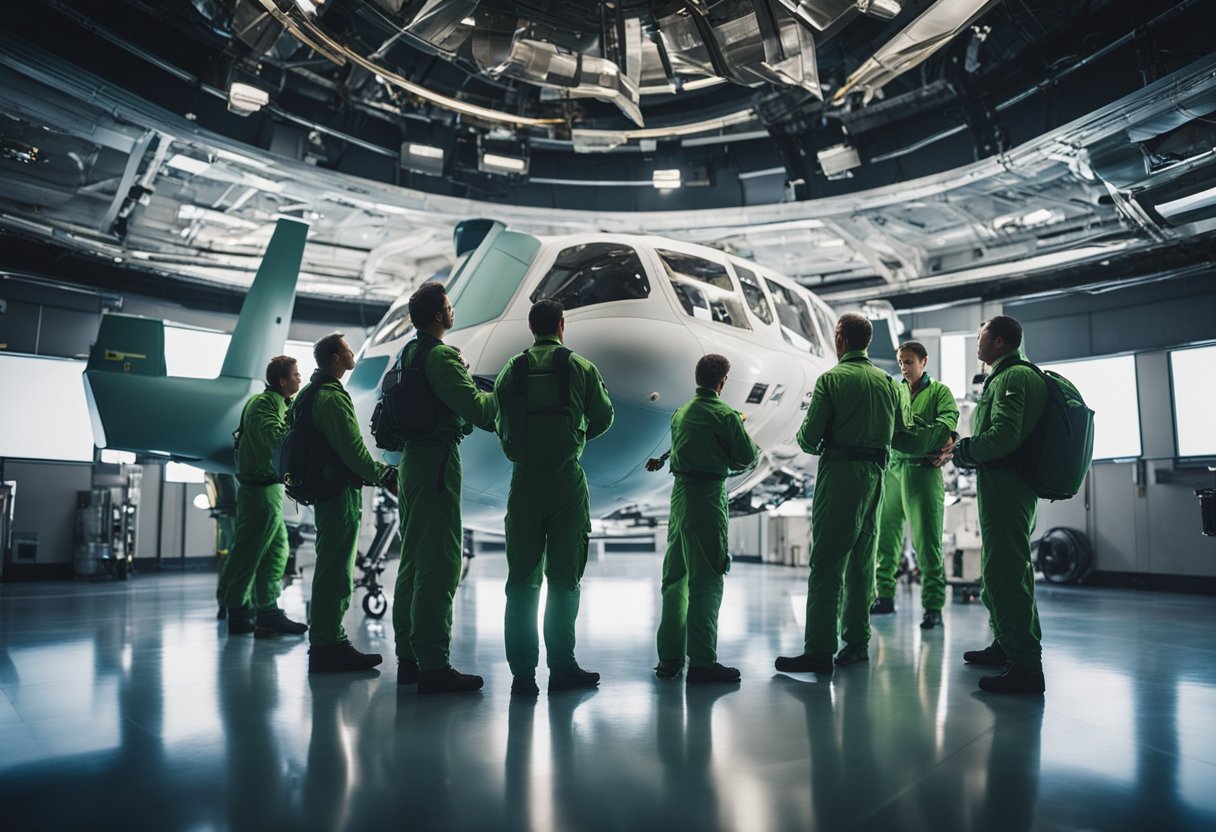
Before embarking on a thrilling zero-gravity flight, we ensure that all participants are well-prepared for the experience. Safety is our top priority, and we’ve established comprehensive protocols to address health and well-being, as well as thorough training and briefing sessions.
Our health and safety provisions are paramount, and we adhere to strict health requirements. Prospective flyers must meet certain medical criteria to minimise risks associated with the weightless environment. This includes assessing one’s vulnerability to motion sickness, for which we may recommend preventive measures such as taking Dramamine or other anti-nausea medication under medical guidance.
Before take-off, our thorough training programme encompasses various aspects of astronaut training to simulate conditions you’ll experience in zero gravity. During the safety briefing, we explain the onboard safety features, what to expect during the flight, and how to move safely in a weightless environment.
By attending to these crucial steps, we ensure that each individual is as prepared as possible for a memorable and safe zero-gravity adventure.
We offer a variety of zero-gravity flight experiences departing from multiple locations across the United States. Patrons can either opt for flights from long-established bases known for their impeccable safety records and experienced staff, or they can choose to embark on their adventure from newer, emerging launch sites that offer unique itineraries.
We are dedicated to creating and facilitating access to the wonder of weightlessness. Whether you depart from a historic space hub or a new site, we ensure every journey into zero-gravity is both safe and exhilarating.
In our exploration of zero gravity flight options, we delve into the different packages that cater to both the general public and specialised sectors.
Public zero gravity flights are accessible to enthusiasts and adventurers who wish to experience weightlessness without travelling to space. Tickets for these flights are typically available for individual purchase, with a common price point starting at $8,200 plus taxes and fees. For those seeking a more tailored experience, private flights offer the exclusivity of having the entire aircraft reserved for a group or special event. Notable FAA-approved providers, like Zero-G, facilitate these flights across various locations, allowing more people to access the sensation of space-like conditions.
Dedicated to advancing our understanding of space and various scientific phenomena, research flights serve as a crucial tool for scientists. Conducted in a controlled zero-gravity environment, such flights enable researchers to perform experiments that would be otherwise impossible under Earth’s gravity. Space tourism’s growing trend intersects with scientific research, offering a unique opportunity for researchers to gather data in a real zero-gravity environment by booking with an FAA-approved provider. These flights are pivotal for both private research institutions and educational entities, pushing the frontier of scientific knowledge and innovation further.
Our zero gravity flight packages offer a repertoire of activities uniquely tailored to the absence of gravity. Engaging in these activities provides passengers not only with amusement but also with a deeper understanding of the physics of a gravity-free environment.
One might engage in a variety of common activities that take on an entirely new dimension in a zero-gravity setting. These activities include:
The simple joy of these activities is often captured in photos that showcase the surreal experience of weightlessness.
Our packages also provide a few unique experiences available to enhance your gravity-free flight:
These experiences are carefully designed to enrich the understanding and appreciation of zero gravity and are all part of what makes our flights truly extraordinary.
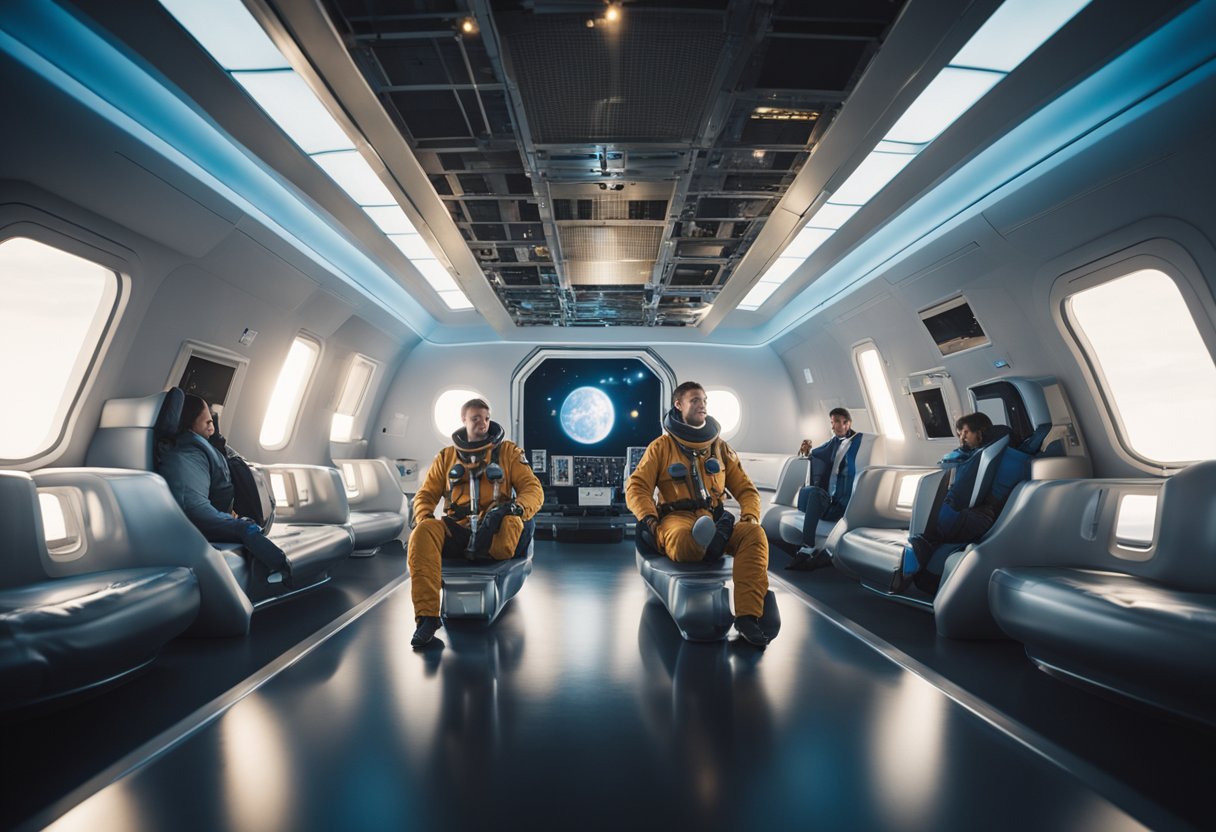
After the exhilaration of a zero-gravity flight, there are a few delightful steps before our guests transition back to the regular pull of Earth’s gravity. We meticulously curate these post-flight experiences to ensure that the euphoria of weightlessness extends even after landing.
Once we’ve safely returned to terra firma, a thorough debrief is conducted to discuss the day’s activities and sensations experienced while floating freely. Every participant receives a personalised certificate of weightless completion, a token of their remarkable journey amongst the stars. This certificate serves as a testament to the unique adventure and is designed to commemorate the achievement splendidly.
We understand the importance of capturing every moment of this surreal experience. A professional photographer is always on hand to document the flight, ensuring that the exhilaration and joy are immortalised. After touchdown, we present our guests with their personal photo and video collections. This includes a series of high-resolution images and videos, encapsulating the sheer delight that only zero-gravity can provide. These keepsakes allow our travellers to relive the incredible adventure and share it with others.
As pioneers in space tourism, we see a bright future with numerous companies offering a variety of experiences. Here, we explore the established operators currently providing extraordinary journeys beyond Earth’s atmosphere and the emerging companies that are poised to expand our horizons.
Virgin Galactic is at the forefront of suborbital space tourism, offering tickets for a 90-minute journey aboard the SpaceShipTwo spaceplane. Passengers will ascend to around 50 km above sea level, experiencing weightlessness and breathtaking views of Earth.
For a taste of microgravity without leaving the stratosphere, Zero Gravity Corporation runs modified Boeing 727-200 flights. These flights perform parabolic arcs to simulate the weightlessness one would encounter in space.
NASA, while primarily known for its exploratory space missions, has also opened the International Space Station for private astronaut missions. These are facilitated through contracted commercial providers and contribute to the growing space tourism industry.
As we look towards the burgeoning horizon of space travel, new players are entering the field. Air Zero G offers an accessible way to experience zero-gravity without a journey to space. These flights are comparable to those offered by Zero Gravity Corporation and provide a similar weightless experience.
Space tourism is expanding rapidly, with websites like Space Voyage Ventures emerging to document the array of space travel opportunities. From detailing current offerings to those on the verge of availability, they provide valuable insights into the evolving landscape of commercial space travel.
In our assessment, the space tourism industry is set to diversify with many more experiences becoming available to the public. We maintain a close watch on the progress and development of these companies, ensuring we stay well-informed about the latest opportunities for space enthusiasts.
In this section, we investigate how gravity varies across different celestial bodies and during simulated gravity environments encountered in unique flight experiences.
Lunar gravity is approximately 1/6th that of Earth’s, meaning that if one weighs 60 kg on Earth, they would weigh merely 10 kg on the Moon. In contrast, Martian gravity is about 3/8ths of Earth’s gravity, placing the same individual at a weight of roughly 23 kg on Mars. These distinctions are crucial for us to comprehend as they significantly affect movement, vehicle design, and habitat construction for potential space explorers.
Simulated gravity environments allow us to experience the sensation of altered weight here on Earth. Zero-gravity flight packages often use aircraft manoeuvres to produce these conditions briefly. By climbing sharply and then descending in a parabolic arc, such flights mimic the free-fall conditions of space offering moments of weightlessness. These experiences are replicated by organisations, with a well-known example being Space Voyage Ventures, which charts current and near-future space tourism opportunities.
Simulated environments also extend to creating artificial gravity for longer durations, such as in space stations, where centripetal force is utilised to generate gravitational pull allowing astronauts to live and work in more conventional conditions. Understanding these artificial gravity methods is essential for the development of long-term space travel and habitation.
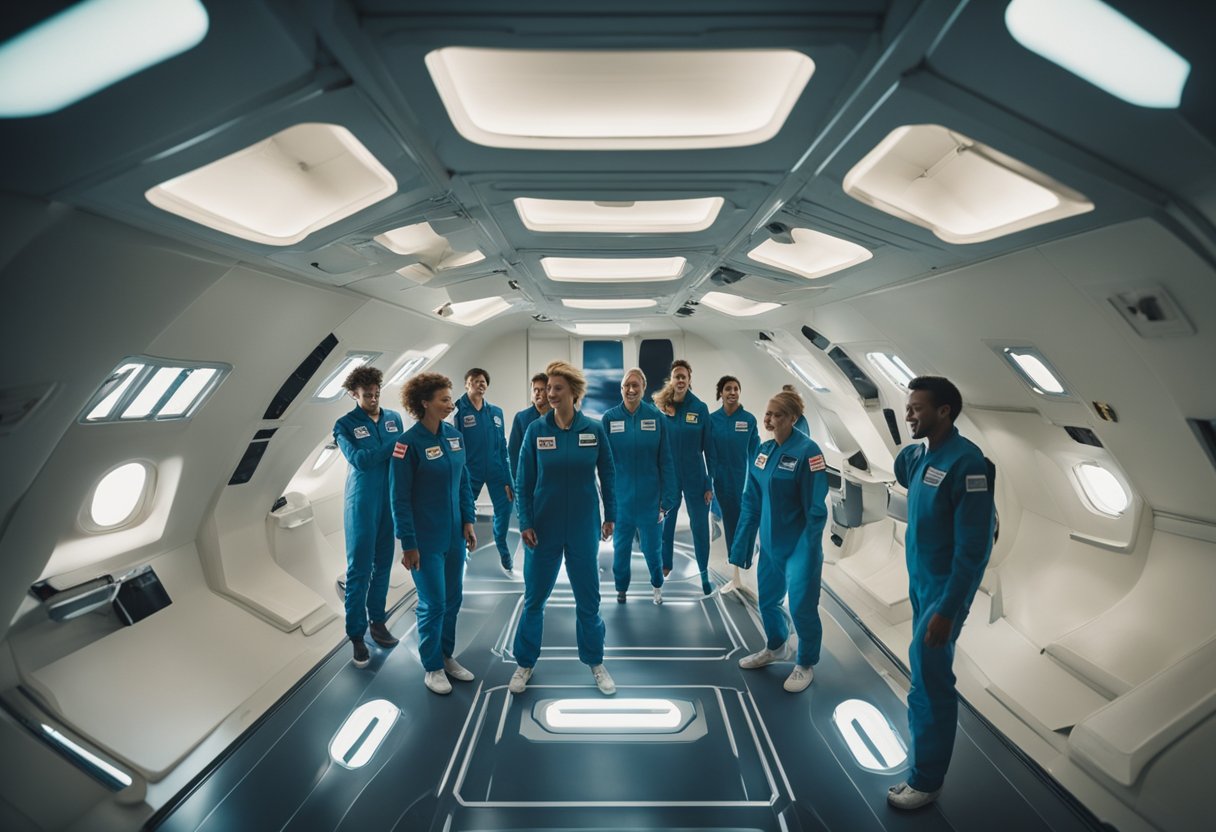
In this section, we detail the fundamental aspects of the policies and additional information pertaining to zero gravity flight packages. Our focus is to ensure clarity and compliance with regulations, and we offer options to stay informed about our latest offerings.
Our Zero Gravity Flight packages are FAA-approved, which affirms they meet the highest standards for safety. Participation in these flights is governed by our comprehensive privacy policy, which ensures the confidentiality and protection of personal data. In line with digital best practices, cookies may be used to enhance user experience on our website, SpaceVoyageVentures.com.
We welcome enthusiasts to subscribe to our newsletter for updates on the vanguard of space tourism. This allows us to share the excitement of new developments and upcoming packages directly with subscribers. Contact information and an easy sign-up option are available on our website, making it straightforward for you to connect with us.
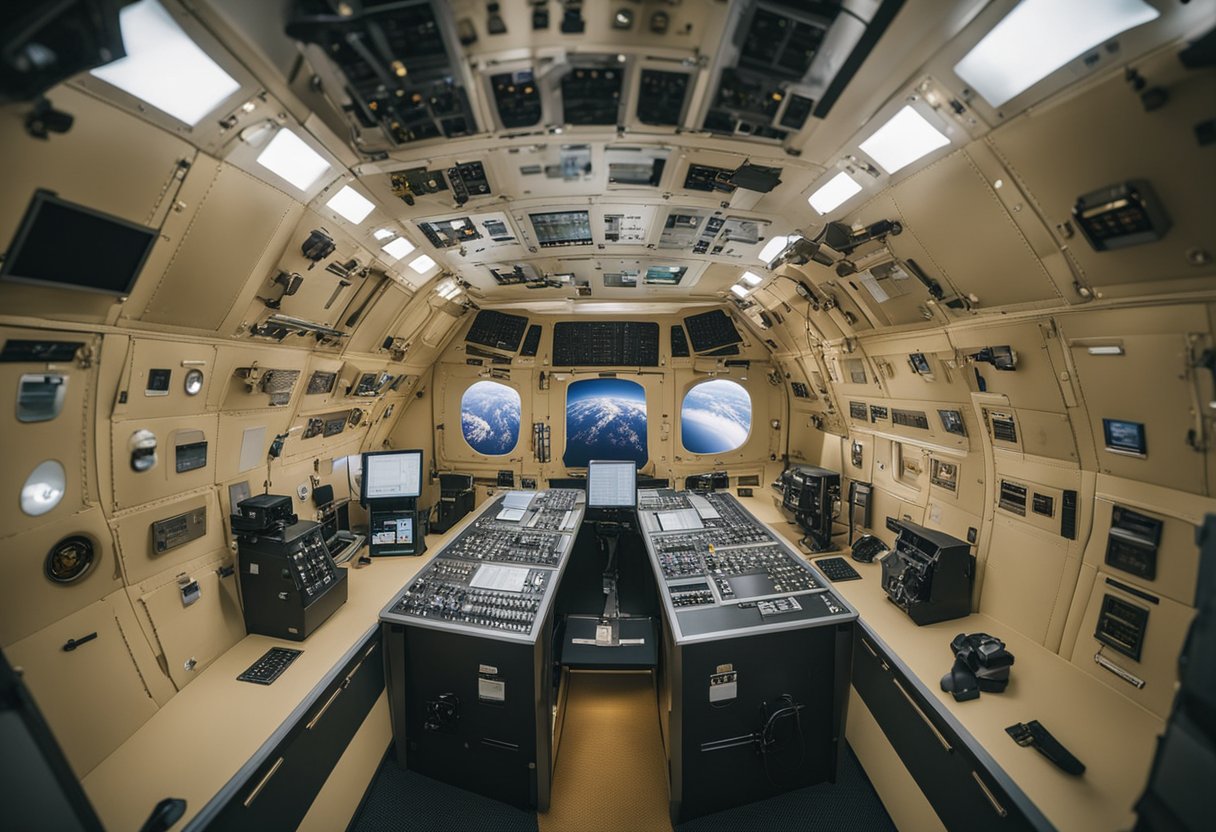
Zero-gravity flights are an impressive achievement in our quest to understand and experience the conditions of space. Our fascination with microgravity began in earnest with the inception of NASA and the pioneering space programmes of the early 1960s.
In 1959, NASA began experimenting with reduced gravity aircraft to train astronauts, leading to the colloquially named ‘vomit comet’ due to the queasiness often experienced by the occupants. These modified planes perform parabolic flights to create short-lived environments where the effects of gravity are not felt, simulating the zero-gravity experience of space.
| Year | Milestone in Zero-Gravity Exploration |
|---|---|
| 1959 | NASA begins reduced gravity training |
| 1960s | Development of the ‘vomit comet’ |
Through these flights, astronauts could prepare for the disorienting effects of space travel before leaving Earth. As we gained competence in space exploration, the capacity to conduct scientific research within these unique conditions also expanded, leading to incredible advancements across multiple disciplines.
Today, companies like SpaceVoyageVentures.com document and expand the frontiers of space tourism, offering packages that simulate the weightlessness one would experience during an actual spaceflight. While initially reserved for training astronauts, zero-gravity flights are now increasingly available to civilians, rendering the once exclusive experience of floating in space accessible to the public.
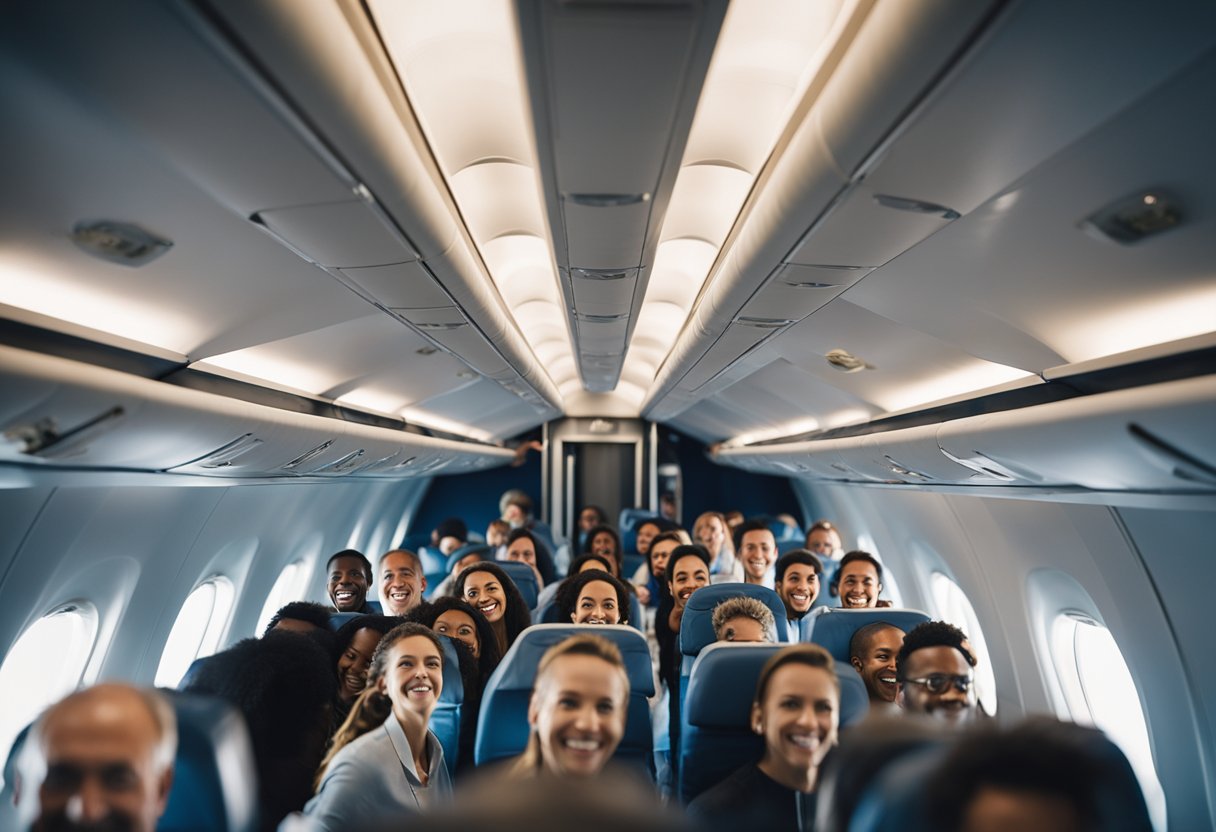
We’ve compiled answers to some of the most common queries about zero gravity flight experiences. These answers should guide those interested in what it takes to float like an astronaut and how to embark on this unique adventure.
One affordable alternative to space travel is to book a seat on a Zero-G flight, which replicates the weightlessness of outer space through parabolic manoeuvres performed by a modified aircraft.
For those curious about experiencing weightlessness, gravity-free discovery flights are open to the public. These flights utilise an Airbus A310 Zero G to simulate the sensations of zero gravity.
Although prices can vary, the cost of a zero gravity experience with companies like Zero-G is typically within reach for those looking for a taste of space without the expense of an actual space mission.
Participants must be at least 18 years old. Health is the principal factor, and age is not a significant limitation. Even people in their 70s have enjoyed these flights, provided they meet the health criteria.
During a zero gravity flight, passengers typically experience short periods of weightlessness, each lasting about 20-30 seconds, across a series of around 15 parabolic arcs.
Zero gravity flights simulate the weightlessness of space by flying in parabolic arcs. During each arc, the plane reaches an angle causing a brief period where gravity’s effects are not felt, creating the sensation of being weightless, just like astronauts in space.